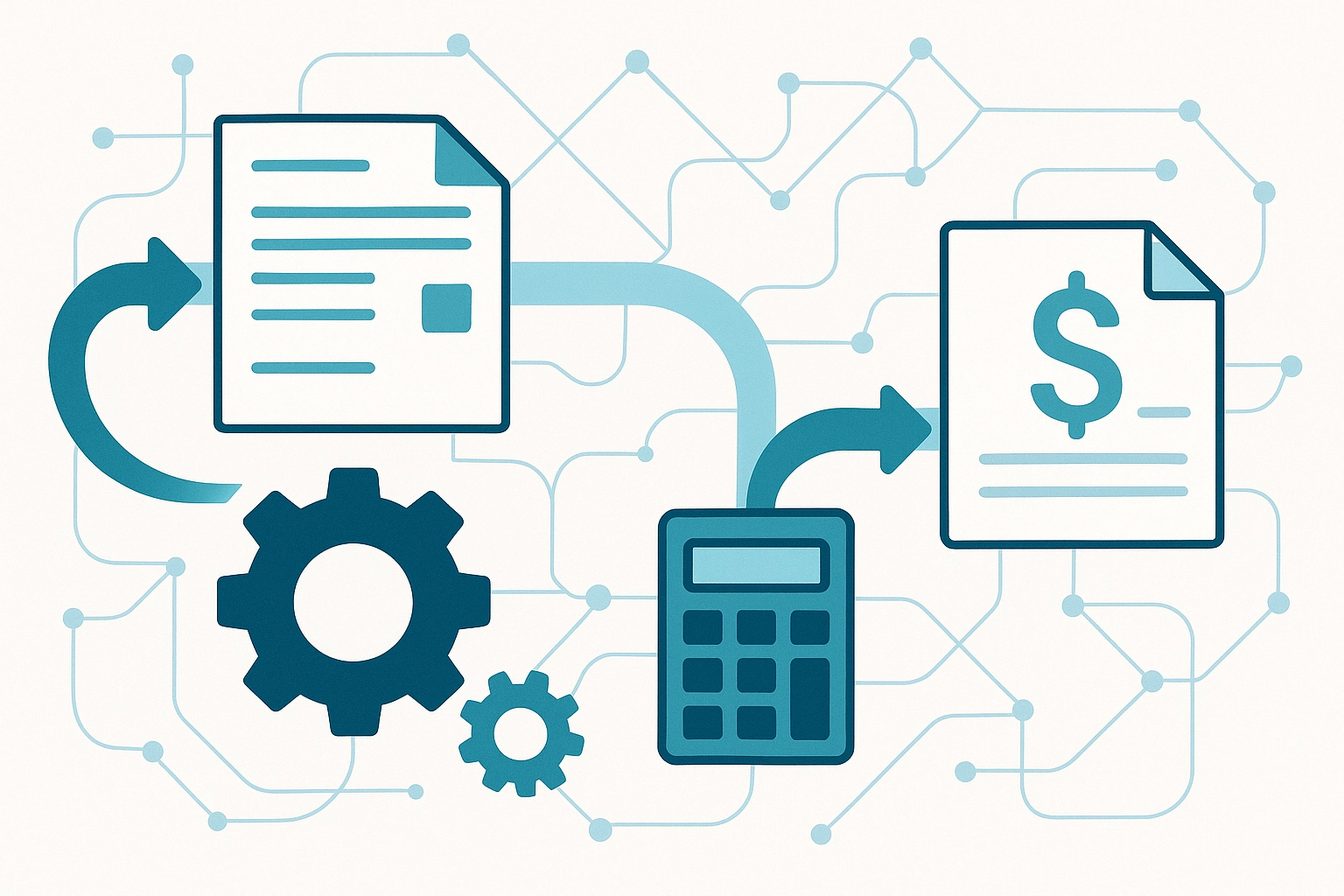Understanding the Differences that Matter
Choosing between working as a freelancer or as a full-time employee can significantly influence your financial health, tax responsibilities, and day-to-day workload. Each path carries a unique set of benefits and drawbacks—understanding how these factors align with your personal and professional goals is essential.
In this article, we’ll compare freelancer vs employee arrangements from the perspective of classification, taxes, and benefits. You’ll learn about the responsibilities placed on independent contractors and how regular employees differ in salary structures, insurance coverage, and tax obligations. We’ll also highlight which approach might suit your lifestyle and discuss how to seamlessly manage invoicing and financial duties, particularly if you decide to go the freelance route.
Classification matters more than many people realize, especially when it comes to taxes and managing your business’s finances. If you’d like to see why correct classification is vital, check out our blog post on Signs That Your Business Needs Electronic Invoicing. It explains how timely and electronic processes can streamline your workflow and help clarify payment roles.
Freelancer vs. Employee: What Sets Them Apart
The terms freelancer and employee describe more than just job titles. They encompass distinct professional relationships, rights, and obligations regulated by government entities like the IRS in the United States. Generally, a freelancer (also known as an independent contractor) sets their own hours and works with multiple clients, while an employee is bound to a single employer who dictates hours, responsibilities, and often provides benefits.
Classification hinges on elements like:
- Control and Independence: Freelancers maintain control over how and when the work is performed. Employees usually follow the employer’s guidelines and schedules.
- Financial Arrangement: Freelancers typically operate under a contract, negotiating payment terms themselves. Employees receive a structured salary or hourly wage set by the employer.
- Tools and Resources: Freelancers often supply their own equipment and software. Employees rely on resources provided by their company.
This distinction has tax implications, as independent contractors are required to pay self-employment taxes, while employees have payroll taxes automatically withheld by their employers. Being labeled as a freelancer also means you’re responsible for marketing yourself, finding clients, and managing all client interactions—including organizing your own CRM if you want to keep track of communication and leads. If you’re considering how to manage those client relationships efficiently, our Manage Customers feature page highlights tools that freelancers can use without the support of a dedicated employer.
Deciding which route to pursue depends on how much independence you want versus the security and support you might enjoy in a traditional employment setting.
Taxes: Who Owes What and When
One of the biggest differences between freelancer vs employee roles is how taxes are handled. Full-time employees typically have taxes—like federal income tax, state income tax, Social Security, and Medicare—automatically withheld from each paycheck. Employers then match or contribute to the employee’s Social Security and Medicare taxes, effectively splitting these costs.
However, freelancers and other independent contractors must manage their own tax obligations:
- Self-Employment Taxes: As a freelancer, you pay both the employee and employer portions of Social Security and Medicare. This is often referred to as the self-employment tax.
- Quarterly Estimated Payments: Freelancers generally must file and pay an estimated tax four times a year. Missing these deadlines can result in penalties and interest charges.
- Record-Keeping: Because income and expenses can vary significantly month to month, freelancers should keep close track of receipts, invoices, and transaction records.
Effective record-keeping can make tax time a lot smoother. Check out The Ultimate Guide to Expense Tracking for Small Businesses for tips on consistent financial documentation. Accurate tracking ensures you have a clear picture of what you owe, when you owe it, and how it fits into your overall cash flow.
Speaking of managing finances effectively, using a tool like Invoice Crowd can simplify your invoicing and expense documentation. By automating the process of generating invoices, you can seamlessly keep track of revenues and streamline your tax preparation at the end of each quarter—or year.
Tax Deductions & Write-offs: What’s Allowed
Tax deductions are invaluable for freelancers looking to reduce their taxable income and maximize savings. While full-time employees only occasionally qualify for certain job-related deductions, the freelance world opens the door to a broader range of write-offs. Key examples include:
- Home Office: If you work from a dedicated space in your house, you may be able to deduct a portion of your rent or mortgage, utilities, and maintenance expenses.
- Business Expenses: Office supplies, advertising, graphic design software, and even some professional development costs can be deducted if they are ordinary and necessary.
- Health Insurance Premiums: Freelancers who pay for their own health insurance may be eligible to deduct some or all of the premiums.
- Equipment and Gear: Laptops, printers, and other essential business tools might be eligible for deductions or depreciation, depending on the item’s purpose and lifespan.
Employees can sometimes claim unreimbursed business expenses, but these deductions have stringent limits and may not yield substantial tax reductions.
To effectively handle these deductibles, it’s crucial to keep consistent records. Our Track Expenses feature offers a straightforward way for freelancers to monitor and categorize write-offs. If you’re unsure about specific deductions, consulting a certified accountant is also a good step, especially when you’re preparing your Schedule C or similar tax forms.
Insurance & Benefits: What You Get vs What You Cover
One major distinction between freelance and full-time employment involves benefits like health insurance, paid time off, and company-sponsored perks. When you’re an employee:
- Health Insurance: Employers commonly pay a portion of your health insurance premium.
- Sick Days & Vacation: Most companies offer paid or partially paid sick leave and vacation.
- Retirement Plans: Plans like 401(k)s often come with employer matches.
Freelancers, on the other hand, must fund all these benefits themselves. There is no automatic pool of sick days, and any time off translates to a direct loss of income, unless they build that into their fee structure. Because you’re your own boss, you can choose the insurance plans that best fit your needs—but you also have to bear 100% of the costs. This can include private health insurance, dental, vision, and more.
If you’re a freelancer offering structured services and want to add unique client perks, consider how you package your business solutions. For inspiration, see how you can utilize our Packages feature to create well-defined service bundles, helping you stand out even if you can’t offer the traditional perks that full-time employees get.
Salary, Payment, & Invoicing Differences
Payment structures vary greatly when comparing freelancers and employees. Employees usually receive a predictable paycheck either weekly, biweekly, or monthly. In many cases, raises are tied to performance reviews or cost-of-living adjustments, and there’s typically a base level of financial stability.
Conversely, freelancers must invoice for each project or period of work. This can lead to income fluctuations:
- Varying Rates: Freelancers can charge per project or by the hour. Some months might bring high-paying jobs; others might be slower.
- Inconsistent Timeline: Payment schedules depend on client terms—some pay within days, while others might take weeks.
- Delayed Payments: Chasing overdue invoices can become an ongoing challenge.
This is where automated invoicing software can make a significant impact. Tools like Create Invoice help ensure that billing is professional, timely, and easy to track. By automating much of the administrative work, you can focus on building your client base. You can also learn how these systems can boost efficiency in your freelance workflow with How Invoicing Software Can Help Boost Your Business. Relying on strong invoicing processes helps keep your finances organized, tackling one of the biggest pain points freelancers face.
Additionally, using Invoice Crowd is invaluable for freelancers juggling multiple clients at once. It centralizes invoices, provides reminders for overdue payments, and helps maintain a smooth cash flow—crucial for offsetting any unpredictable dips in workload.
Retirement & Long-Term Planning
Nested within the broader discussion of financial implications is your ability to save for the future. Employees often have the advantage of contributing to an employer-sponsored 401(k) or pension plan. In these setups, employers might match contributions or even automatically enroll staff, creating a seamless saving habit.
Freelancers, however, need to be more proactive. Options for self-employed individuals include:
- SEP IRA: A Simplified Employee Pension plan lets you contribute a certain percentage of your net earnings from self-employment.
- Solo 401(k): Similar to a traditional 401(k), but specifically for self-employed individuals with no full-time employees other than a spouse.
- Traditional or Roth IRA: Freelancers may choose these individual retirement accounts depending on their eligibility and tax preferences.
Tax considerations also come into play here. Some plans, like a SEP IRA, can lower your taxable income for the year, which could be beneficial when filing taxes. If you wish to dive deeper into financial metrics and retirement goals, feel free to look at Essential Financial Metrics Every Small Business Owner Should Track for goal-oriented planning approaches.
Flexibility vs Stability: Lifestyle Trade-Offs
Choosing between being a freelancer or a full-time employee often boils down to personal values and lifestyle preferences. Freelancers relish the flexibility to set their own business hours, handpick projects, and pivot quickly if market conditions change. On the flip side, employees benefit from a consistent schedule, benefits, and the reassurance of a reliable paycheck.
It’s important to note that freedom doesn’t mean an easy ride:
- Freelance Flexibility: You can work from anywhere or manage your own schedule, but juggling tasks like marketing, invoicing, and networking can create drawbacks.
- Employee Stability: There’s built-in structure—yet limited autonomy if you prefer to shape your work environment.
Regardless of which arrangement suits you better, healthy time management is crucial for maximizing productivity and avoiding burnout. If you’re seeking practical strategies for an optimal schedule, see The Art of Time Management to gain insights on balancing tasks and personal well-being effectively.
Which Is Right for You? Use Cases to Compare Paths
We all come from different professional backgrounds, so let’s look at some use cases that highlight how personal goals and financial priorities may guide your choice between working as a freelancer or an employee:
- Freelance Graphic Designer: Someone who enjoys complete creative freedom, negotiates individual project rates, and designs logos or marketing materials for multiple brands. Managing each client’s invoice through Invoice Crowd can help them stay on top of payment schedules. Features like Recurring Billing or Split/Partial Payment also enable flexible payment terms for larger projects.
- Marketing Freelancer: A strategist who thrives on building digital marketing campaigns for various small businesses. They set their own consulting fees and choose the clients they want to represent. Invoices and retainer fees can be easily managed through an automated system, streamlining monthly billing tasks.
- Full-Time Employee at a Startup: This professional might crave the stability of an employer-sponsored health insurance package and regular pay. They appreciate the structure of a team environment but sacrifice some independence in terms of setting their workload or specialized tasks.
Each scenario highlights how different employment categories influence income management, lifestyle preferences, and professional growth. As a freelancer, you shoulder most operation duties—yet you may find autonomy and variety in your workload rewarding.
Conclusion: Navigating the Financial Terrain
We’ve compared tax obligations, benefits, and salary structures for both freelancers and employees. From tax classification to insurance coverage and retirement plans, each route offers distinct advantages and challenges. The choice often comes down to what kind of work-life balance, financial predictability, and professional control you seek.
However, whether you’re an employee or you’re a freelancer, you’ll still confront financial implications and tax filing requirements. That’s where thoughtfully chosen business tools can simplify your daily operations. If you’re ready to streamline how you create and track invoices, Invoice Crowd provides robust solutions tailored to freelancers and small business owners.
Need to know more about ways to stay organized and efficient? Explore Features that can help you confidently tackle your administrative tasks. As you move forward, remember that understanding your responsibilities—and leveraging the right tools—can ensure a smoother ride, no matter which professional path you follow.



